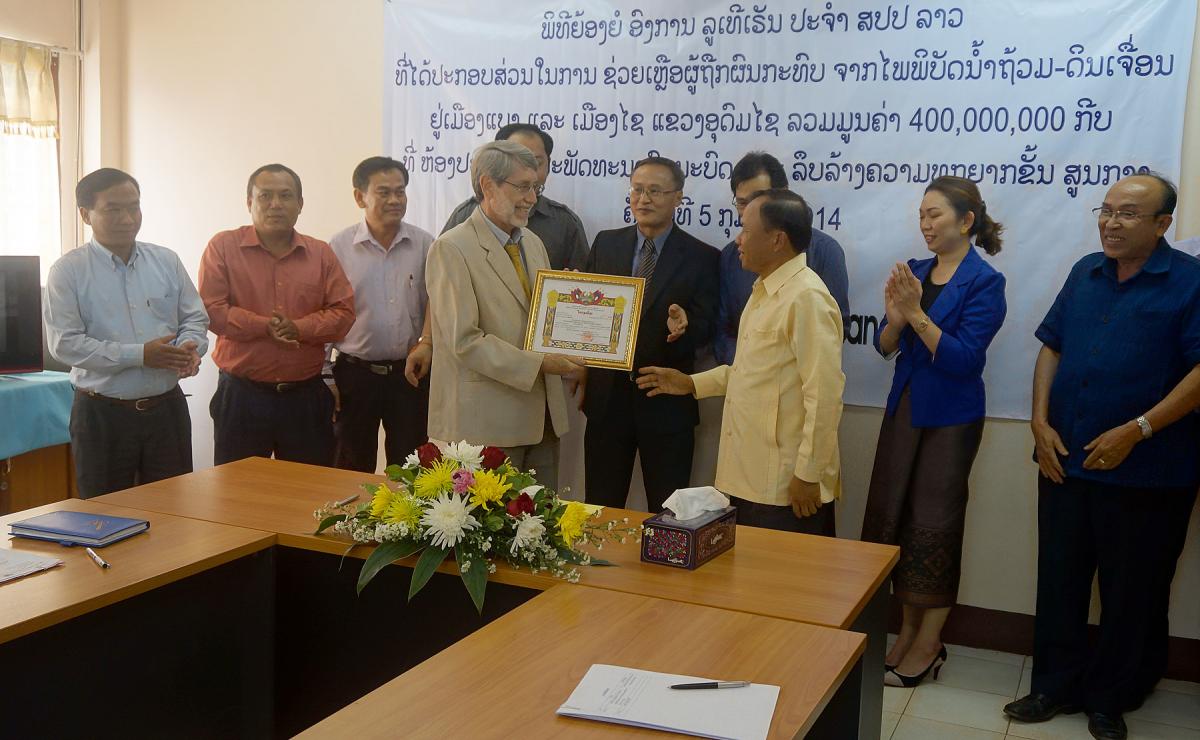Laos Government Award to LWF for “Timely and Relevant Response” in Emergency

Possibilities for Further Collaboration to Empower Rural Communities
(LWI) – A government award to The Lutheran World Federation (LWF) for its “timely and relevant response” to populations affected by severe flooding in northwestern Laos affirms the need to strengthen collaboration with local authorities when supporting communities in need, says Mr David Mueller, LWF regional representative for Southeast Asia.
Mueller made these remarks after the LWF received a Certificate of Appreciation from the Government of the Lao People’s Democratic Republic on 5 February. Presenting the award in the capital Vientiane, the Deputy Head of the National Committee for Rural Development and Poverty Eradication (NCRDPE) Mr Somsanith Souvannalath thanked the LWF for “the generous, coordinated, timely and relevant response” with food and non-food items to families affected by flash floods and landslides in August 2013.
The government also commended the LWF for engaging residents in the affected villages in a transparent and participatory way during the emergency which had resulted in loss of lives, huge population displacements and destruction of infrastructure and livelihoods. In addition, the NCRDPE official thanked LWF for the ongoing close cooperation at national, provincial and district levels.
LWF’s intervention following the flooding in the worst affected districts of Beng and Xay benefitted nearly 300 families with food and non-food items including materials to construct shelters, over a period of three months. The rapid response assistance worth USD 51,017 was coordinated through the global ACT Alliance network.
LWF’s presence in Laos is through the Department for World Service (DWS) regional program for Southeast Asia, which started working there in 2012. In close partnership with the local authorities, it supports rural communities to develop sustainable livelihoods through various activities including agriculture, improving health, sanitation and education infrastructure, and the formation of community-based organizations.
“In many ways, the LWF has won the trust of the government and built up working relationships that benefit the communities we seek to serve,” Mueller noted. This, he added, “has facilitated a rights-based empowerment approach that helps local populations to devise ways to manage disaster risks and find options for alternative livelihoods.”
Most of the villagers assisted by the LWF following the flooding have resumed their agricultural activities including livestock keeping; and schools and infrastructure have been renovated.
The LWF representative explained that future partnerships in the relatively new DWS program will include capacity development in disaster risk management.

